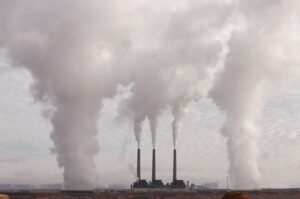The world’s earliest known uses of hemp were textiles. Hemp boasts a long history of benefits. You might be familiar with one, the U.S. Constitution was drafted on hemp paper, and the oldest known fabric remnant found by archaeologists in Turkey hemp spun textile 9,000-year-old.
Every part of the plant can be used, including its seeds, flowers, leaves, and roots. Like marijuana, hemp is a cannabis plant that produces THC. However, hemp has 0.3 percent THC, much less than marijuana. In today’s blog, we’ll dive into the planetary benefits of hemp. In short: growing more hemp may save the planet from global warming disasters.
Uses Of Hemp Today
There’s no denying that hemp is a pretty impressive plant with a long list of environmental benefits. From cleaning the air to restoring the Earth’s soil, there’s seemingly no end to its planetary perks. Switching to hemp has the potential to create a cleaner and greener environment for generations to come. Here are nine unique ways that hemp can help keep Earth healthy and save the planet.

Hemp Improves Soil
As the hemp plant grows and matures, leaf matter falls to the ground and decomposes. This process replenishes the surrounding soil with nutrients, preparing it for a richer yield the following year.
And the incredible benefits don’t end there. The plant’s deep roots can reach up to nine feet below ground, which helps hold the soil together and prevents erosion. Introducing hemp into crop rotations can reverse the effects of soil compaction and erosion.
Hemp Breathes in CO2.
Do you ever worry about the lack of clean air due to dangerous gases and toxins? Hemp may save the planet by converting CO2 into oxygen for us to breathe. Known as nature’s purifier, hemp takes in carbon dioxide from the atmosphere and makes the surrounding air much cleaner. For every ton of hemp produced, 1.63 tons of carbon is removed from the air, which means hemp is more effective at clearing the atmosphere than trees.
Hemp Can Generate Biodegradable Synthetics.
Did you know that Americans use billions of plastic water bottles each year? These bottles take between 400 to 1,000 years to decompose, which is a great incentive to switch to an alternative material like hemp. The plant is non-toxic and biodegradable and can be used for producing plastics. Instead of filling landfills with toxic chemicals such as petroleum, we can recycle natural products and use hemp.

Hemp Plants Consume Toxic Elements.
One of hemp’s many talents is the ability to eliminate harmful toxins by absorbing them. Hemp effectively removes toxic materials following the nuclear disaster at =Chernobyl to remove radioactive strontium and cesium. The plant has even been considered for removing radiation from Fukushima, a nuclear disaster site in Japan.
Hemp Textiles Are Free Of Chemicals.
Sadly, most of today’s synthetic fabrics are made from highly toxic compounds that produce polymer-based petrochemical materials. It takes a massive amount of energy to create these fabrics, burning coal, oil, or crude oil.
This process also releases toxic emissions into the air and leaves harmful residues in the fibers. An easy way to fix these problems is by switching to hemp. Clothing made from hemp is a win-win situation. Not only does it have zero chemical residue, but it’s also incredibly durable and UV-resistant.

Hemp Encourages Sustainable Agriculture.
An essential aspect of sustainable farming practices is crop rotation. Rotating crops according to season helps keep soil nutrients up. Since hemp is an annual crop that can be harvested within four months of being planted, it is the perfect candidate for crop rotation. Farmers can use hemp for richer, cleaner soil and larger crop yield to help save the planet.
Hemp Decreases Air Pollution.
Air pollution is responsible for several devastating environmental effects, including human health problems, acid rain, and global warming. The United States is the world’s second-largest generator of carbon dioxide, following China. However, there is hope in hemp. The plant can help us face this problem head-on since it effectively breaks down pollutants and improves overall air quality.
Hemp Agriculture Reduces Deforestation.
Deforestation is spreading across the planet at an alarming pace. While many scientists now believe that the entire rainforest will be gone within 100 years, hemp could turn this situation around. It could easily replace trees as the primary source of raw material for paper. The plant only takes four months to grow compared to trees, which take years to mature. Hemp paper is also more durable than paper made from trees.
![]()
Thank you again for visiting Hemp Medical Benefits and for allowing us to serve you. So please accept my genuine thank you. You are always welcome back. Please leave your questions, comments, or feedback below.
Cheers,
Kevin
kevin@hempmedicalbenefits.com


